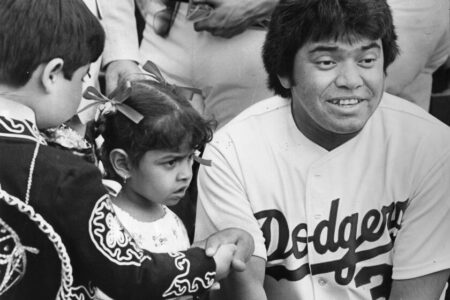A Presidential Pardon and a Commissioner’s Consideration
On Friday, President Donald Trump made headlines by announcing that he would issue a posthumous pardon to Pete Rose, the former Major League Baseball (MLB) player and all-time hit king. Trump’s statement, which urged MLB to "get off its fat, lazy ass" and reinstate Rose, has reignited discussions about the broader implications for Rose’s legacy. Coincidentally, MLB Commissioner Rob Manfred is reportedly contemplating a similar move, as the family of Pete Rose has petitioned for his posthumous reinstatement to the sport, thereby making him eligible for induction into the National Baseball Hall of Fame. The petition, filed on January 8, comes after Rose’s death from heart disease in September 2022, and it marks a significant shift in the narrative surrounding one of baseball’s most controversial figures.
The Family’s Fight for Legacy
Pete Rose’s eldest daughter, Fawn Rose, and his former lawyer, Jeffrey Lenkov, met with Commissioner Manfred and MLB spokesperson Pat Courtney on December 17 to discuss the reinstatement petition. Lenkov, who remained Rose’s legal representative until his death, emphasized the significance of this meeting, stating that Manfred was "respectful, gracious, and actively participated in productive discussions regarding removing Rose from the ineligible list." The family’s primary goal is to see Rose inducted into the National Baseball Hall of Fame, a dream that Rose himself had harbored for years and which his family now seeks to achieve posthumously. Lenkov’s comments suggest a level of openness from the commissioner’s office, but the ultimate decision remains a complex and sensitive issue.
A History of Rejection
This is not the first time that Manfred has faced a petition for Rose’s reinstatement. In 2015, while Rose was still alive, Manfred rejected a bid for his return to the sport. As recently as 2023, the commissioner has reiterated his stance that there are no plans to change Rose’s status. The reasons behind these rejections are deeply rooted in the history of Rose’s ban. In 1989, Rose agreed to a permanent ban from baseball after an investigation found that he had gambled on his own team while serving as the manager of the Cincinnati Reds. Despite this agreement, Rose continued to deny his gambling activities for years, further complicating his case and diminishing the league’s willingness to show leniency.
The Ban and Its Impact
The ban from baseball has had a profound impact on Pete Rose’s life and legacy. For decades, he was regarded as a pariah within the sport, excluded from the Hall of Fame and many of the privileges and recognitions afforded to other retired players. Rose’s inability to acknowledge his gambling for a significant period strained his relationships with the league and many of his former teammates. However, in his later years, Rose began to reconcile with the Cincinnati Reds and some of his former colleagues, which has helped to soften the harsh public perception of his actions. His contributions to the game, including his record-breaking 4,256 hits, 17 All-Star selections, three batting titles, an MVP award, two Gold Gloves, a Silver Slugger, and a Rookie of the Year award, remain undeniable.
The Legacy Reset
Pete Rose’s death might offer a fresh perspective and a chance to reset his legacy. While the president’s pardon won’t directly influence the ban from baseball, it could help to clear Rose’s name in other ways, particularly regarding the tax evasion charges for which he served five months in prison in 1990. The family’s petition to the commissioner is a deliberate effort to ensure that Rose’s remarkable achievements on the field are recognized and celebrated, rather than overshadowed by the controversy of his gambling. This reset could be a pivotal moment for the baseball community, providing an opportunity to acknowledge the historical significance of Rose’s career and to heal some of the long-standing wounds.
A Complex Decision
The decision to reinstate Pete Rose posthumously is fraught with complexity. On one hand, his statistical achievements and the respect he earned from fans and players alike are unparalleled. On the other hand, the integrity of the sport must be protected, and there is a legitimate concern about setting a precedent that could undermine the rules and values of baseball. Manfred’s willingness to engage in discussions with Rose’s family and legal representatives suggests that he is open to considering this petition more seriously. However, any final decision will need to balance the desire to honor a great player with the need to uphold the sport’s standards and integrity. The coming weeks and months will likely see a thorough review of the case, and the baseball community will be watching closely to see how this story unfolds.











